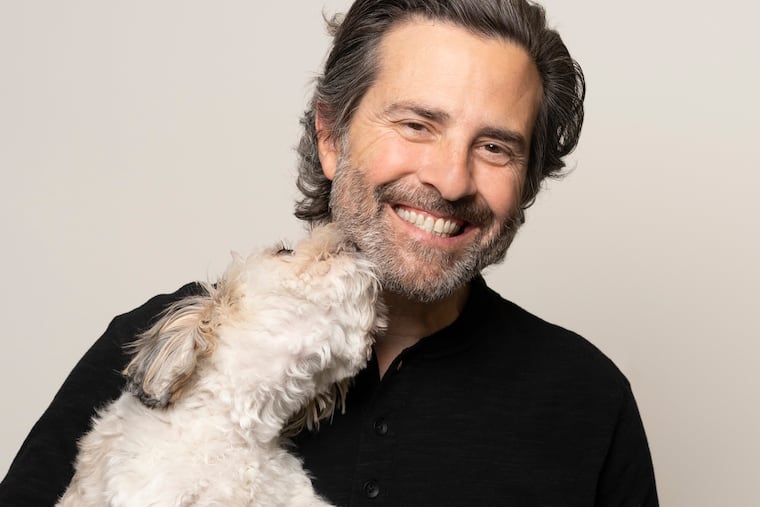Combatants in Petplan fight declare a truce, pending merger
New owners will have to decide what to do with the company’s pet-friendly offices in Newtown Square and more than 200 employees.

The year-old legal fight for control of Fetch Inc., which sells Petplan veterinary insurance for dogs and cats to 200,000 Americans from its Newtown Square offices, has reached a cease-fire and will end in a private settlement — if owners can complete a planned merger or acquisition before the end of the year.
“The settlement agreement is contingent on, among other things, the closing of a certain M&A transaction for the company,” said lawyers for ousted founders Christopher and Natasha Ashton, and for partners-turned-rival investors led by Moorestown banker Vernon Hill. Their request was all stipulated, in an Aug. 20 filing, asking Delaware Vice Chancellor Kathaleen St. Jude McCormick to stay the case until year’s end so that Fetch can get the deal done.
McCormick agreed to freeze proceedings until Dec. 31. Another suit in Philadelphia Common Pleas Court was also stayed for the deal. The company has been for sale since at least 2017.
In a brief statement, Fetch called the arrangement “a satisfactory resolution of disputes with the Ashtons that is in the best interest of Fetch, its shareholders, employees and policyholders” and called the pending merger “a business opportunity.”
Settlement terms — and the identity of Fetch’s new would-be business partner — haven’t been disclosed.
The Ashtons were paid $375,000 a year each before their 2018 firing and still own a third of the company that they founded from their Philadelphia apartment while earning Wharton MBAs in the early 2000s. They had sought $2 million each, plus costs, in a suit filed in Common Pleas Court in Philadelphia last year and is scheduled for trial next year.
The separate lawsuit in Delaware Chancery court, which went to trial in April, was over the Ashtons’ contention that they still have veto right over key company policies — notably, the terms of its underwriting agreement with insurance company AXA XL. The investors said AXA XL needed a better deal or it would likely stop writing new policies. But the Ashtons said the terms the investors agreed to gave too much power and money to XL.
At the end of that trial, McCormick warned Hill’s lawyers that even some of their own witnesses, including former company lawyer Robert Borghese, a Wharton professor, had supported the Ashtons’ case that they still had substantial rights to veto company policies. She urged the investors’ lawyers to attempt a settlement instead of waiting for her decision.
New owners will have to decide what to do with the company’s pet-friendly offices and more than 200 employees. Over the last two years, Fetch has held talks with buyout investor Leonard Green & Partners, big insurers, and other would-be buyers without reaching a deal.
The Ashtons alleged in the Philadelphia suit that they were fired as co-CEOs “without cause” in early 2018.
Hill’s lawyers said the Ashtons were removed because sales were slowing, profits were falling, and they resisted changes that would boost Petplan’s flagging growth — which they say has revived under the Ashtons’ replacement, new CEO Paul Guyardo.
“The company continues to perform very well," with 14% subscriber growth in both three-month periods ended March 31 and June 30, Fetch said in a statement today.
At the end of the Delaware trial, Vice Chancellor McCormick called attention to what she called the “unusual” fact that lawyer Borghese, who wrote the argument that investors used to justify sidelining the Ashtons, “stated under oath that he now believes it to have been an aggressive approach and baseless.”
What will the Ashtons do if they gain a settlement in the millions? During the trial, Christopher Ashton said they are making plans for a new business. Maybe based on pet food sales, he said.
A settlement that resulted in both Hill and his former partners exiting the company and selling their assets would recall the end of the six-year legal fight between Hill and another founder-partner-turned-courtroom antagonist, Saladworks founder John Scardapane.
The former friends quarreled when Hill pushed a store redesign plan by his wife, Shirley Hill, which Scardapane said store operators found too expensive and not effective. To resolve the resulting litigation, Saladworks was sold to private equity investor Centre Lane Partners.
Hill is also the founder of Metro Bank PLC, a British bank where he agreed to step down as chairman earlier this year after the share price fell 90% following a financial restatement. Hill’s co-investors in Metro Bank include New York hedge fund billionaire Steven A. Cohen, who is also Hill’s co-investor in Fetch.
Hill is also chairman of Philadelphia-based Republic Bank.